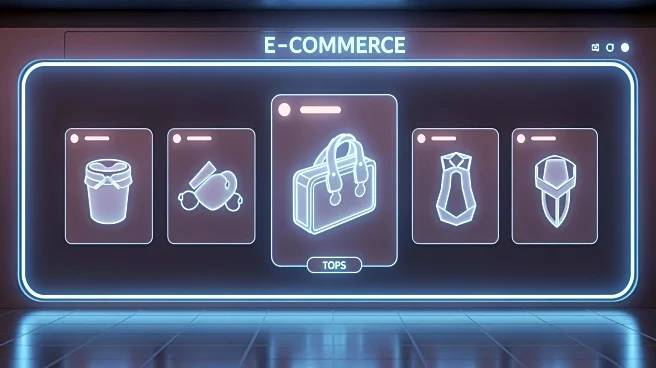What's Happening?
E-commerce is projected to account for 23% of global retail sales by 2025, with expectations to reach 25% by 2030. Various business models, including B2C, B2B, and D2C, offer different benefits and challenges.
Value delivery methods such as dropshipping, subscriptions, and private label shape profitability and scalability. Emerging trends like AI personalization and hyper-localization are influencing the future of e-commerce.
Why It's Important?
The growth of e-commerce presents opportunities for businesses to expand their reach and increase sales through digital channels. Choosing the right business model is crucial for long-term success, as it affects pricing, fulfillment, and scalability. The integration of AI and technology offers significant advantages, including personalized shopping experiences and improved operational efficiencies. As consumer expectations evolve, businesses must adapt to remain competitive in the digital landscape.
What's Next?
Businesses are encouraged to embrace emerging trends such as AI-driven personalization and hyper-localization to enhance customer experiences and operational efficiencies. The focus on sustainability and ethical practices will drive the adoption of innovative solutions that optimize supply chains and reduce waste. As e-commerce continues to evolve, businesses must prioritize adaptability and innovation to succeed in a rapidly changing market.
Beyond the Headlines
The rise of e-commerce highlights the importance of ethical practices and transparency in business operations. Brands that prioritize consumer trust and privacy will likely gain a competitive edge. Additionally, the focus on inclusivity and diversity offers opportunities for businesses to connect authentically with diverse audiences, fostering stronger customer loyalty.








